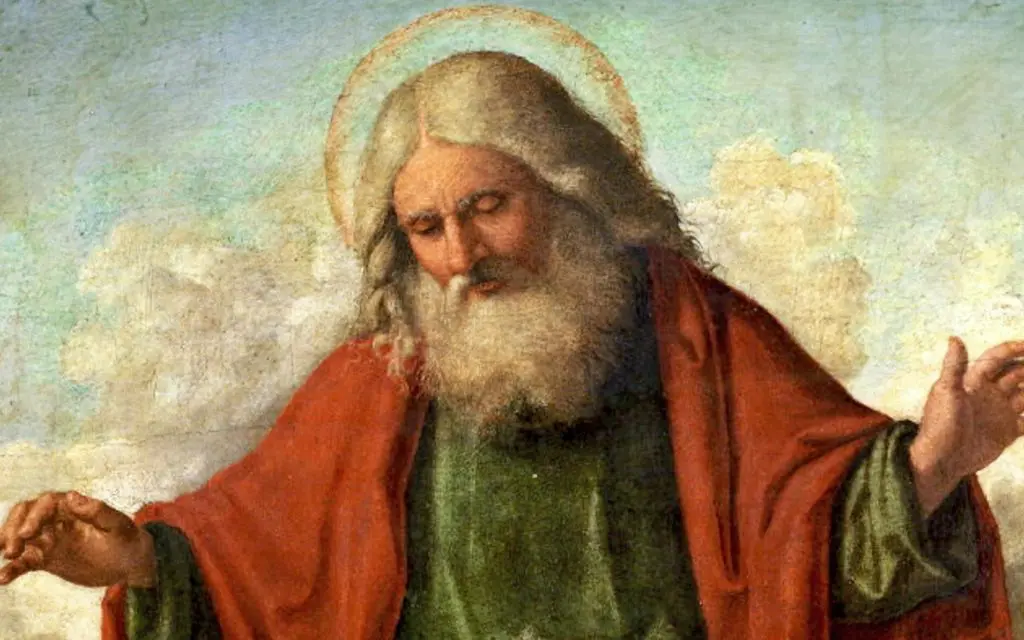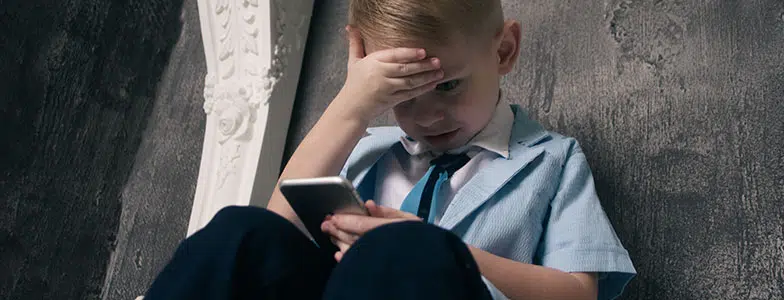The Father’s Heart: Healing the Wounds of a Fatherless Generation

“As experience teaches, the absence of a father causes psychological and moral imbalance and notable difficulties in family relationships, as does, in contrary circumstances, the oppressive presence of a father, especially where there still prevails the phenomenon of “machismo,” or a wrong superiority of male prerogatives which humiliates women and inhibits the development of healthy family relationships.” ― Pope St. John Paul II, Familiaris consortio
A few days ago, Pope Leo XIV addressed a group of experts gathered to discuss the topic of evangelization in the context of the family. In his remarks, the Holy Father observed that, “Ours is a time marked by a growing search for spirituality, particularly evident in young people, who are longing for authentic relationships and guides in life.”
He added:
The profound thirst for the infinite present in the heart of every human being means that parents have the duty to make their children aware of the fatherhood of God. In the words of Saint Augustine: “As we have the source of life in you, O Lord, in your light we shall see light” (Confessions, XIII, 16).
One might well ask: Why is the fatherhood of God, in particular, an attribute that parents need to teach their children about God?

There are many ways to answer this question. But perhaps the easiest way is simply to look at the ways in which the absence of earthly fathers so profoundly affects the fatherless, and to realize that the same critical contributions that earthly fathers make to the physical, mental, and spiritual health of their children are the same that God the Father provides His beloved children, but to a superabundant degree.
If the absence of an earthly father can so deeply affect the lives of children, how much more so will the failure to know and abide in the fatherhood of God the Father negatively affect them?
The Tragedy of Fatherlessness
As our Holy Father noted, young people today are looking for “authentic relationships and guides in life.” Tragically, statistics are showing that young people are feeling increasingly isolated, lonely, and confused, lacking the security of deep relationships and mentors, starting in the home.
As the American Psychological Association highlights in a recent report, “In the 10 years leading up to the pandemic, feelings of persistent sadness and hopelessness—as well as suicidal thoughts and behaviors—increased by about 40% among young people.” Unfortunately, the data are clear that things have only worsened since the pandemic.
There are, no doubt, many reasons for this decline in mental health: the rise of social media, the fear and uncertainty experienced during the pandemic, increasing political polarization, etc. However, having just celebrated Father’s Day, it is worth reminding our selves of one of the firmest, most well-established findings of the social sciences, i.e. that fatherhood absence is a consistent and strong predictor of poor mental health outcomes in children.
As one 2022 study put it, the absence of a father “was strongly associated with increased odds of offspring depression and greater depressive symptoms at age 24 years.” As the study noted, this is especially true in the case of girls, who seem to be even more prone to suffering from depression and anxiety in cases when their father has been absent, than in the case of boys.
The correlation between girls’ poor mental health and the absence of their fathers seems especially pertinent in light of the fact that over the past decade and a half girls’ mental health has declined at a far more rapid rate than that of boys. As a PBS report summarizes, “[I]n 2021, 57% of high school girls reported experiencing ‘persistent feelings of sadness or hopelessness in the past year,’ up from 36% in 2011. That’s nearly twice as high as the 29% of males who reported having those feelings in 2021.”
Father’s as Pillars of Strength and Stability
Although it is too rarely spoken about, one of the most established findings of the social sciences in recent decades, is just how detrimental divorce is on children, in almost every area.
The strength of the findings is such that you would think that our society would be pouring resources into finding solutions to family breakdown, including incentivizing marital fidelity, and de-incentivizing divorce. Unfortunately, however, we live in a world that valorizes the so-called “freedom to choose,” not just in the case of abortion, but in all lifestyle choices.
The problem with this elevation of the “right to choose” to a supreme value, however, is that it ignores the fact that as social creatures, who are deeply interconnected. What we choose to do may have an impact far beyond the circumference of our own selves. This is especially true for parents, whose “private” love life can have far-reaching effects on their children.
A Heavy Cost of Such a Loss
It isn’t difficult to imagine why children might be so prone to poor mental health outcomes when their fathers are absent. As any child who has grown up with a good, loving, strong father knows, a father can provide a sense of safety and protection in a way that no one else can.
Yes, strong mothers, and strong teachers, or other role models, can be immensely valuable for children, and can even make up for some of the losses experienced when a father isn’t present. However, there is a deep security that comes from knowing that dad is there, protecting the home, providing for the family, and encouraging a child when the going gets tough.
At its best, fatherhood combines strength, courage, dedication, and humility in the service of the family and society. Fathers are called to be watchmen, humble workers, in love with their wives and protective of their children. With their wives and children, they are pilgrims on the arduous path of holiness, advancing with the firm resolve to love and assist those under their charge to flourish in true human development. Doing so, they help in the transformation of the world.
The absence of a father in a child’s life often leads to a lack of strong, concrete reference points, a lack of self-confidence, disorders of sexual identity and filiation, etc. It has also led to an increase in addictive and compulsive behaviors, loss of a sense of limits, increased violent behavior, significantly poorer educational outcomes, and much more.
The War on Fatherhood
In a world in which children are exposed to so many competing influences, particularly in the form of Internet culture, which in a special way attacks the dignity and worth of women, there is a greater need than ever for strong fathers.
Sadly, the attacks on authentic fatherhood in our society are deep, pernicious, and far-reaching.
In many cases, it begins long before a boy is even thinking about deep questions of marriage, parenthood, or identity. It begins with the messages that he sees on television or in movies, suggesting that fathers are primarily stumbling blocks to their children, representatives of arbitrary power and repression, whose authority one must cast off if one is to grow into one’s “authentic” self.

It begins with the messages that he sees on billboards, or in his social media feeds, suggesting that that the relationship that men have with women, and should have with women, is one of a consumer, seeking to obtain the greatest degree of personal pleasure and satisfaction from the greatest number of women.
It begins with the belittling remarks of activists, suggesting that men have a duty to cultivate a weak, deferential personality, lest their “toxic masculinity” unwittingly cause harm to others.
It begins when boys come across the angry talking heads on the “manosphere,” who whisper in their ears the sinister message that because men are being put down and belittled in our current culture, they should rise up and exercise their power to the utmost, proving their masculinity by taking as much as they can, in the form of sex, money, and power.
Inevitably, for the overwhelming majority of boys, it continues with the messages that they receive from the flood of hardcore pornography through which they will eventually wade, which teaches them that sex is about domination, in many cases violent, degrading domination.
And so it is, that with so many conflicting messages, and without strong role models on which to model their lives, our boys are torn between extremes: from the hardcore feminists shrilly warning them to repress anything uniquely masculine in their personalities, to the “manosphere” influencers, who urge them to embrace their “toxic masculinity” without apology.
And lost in all the noise is the true understanding of fatherhood.
Calling All Fathers to Greatness
One of the classic texts on marital love is found in St. Paul’s Letter to the Ephesians. In that letter, St. Paul calls men to the highest level of greatness by modelling their behavior on the love of Christ Himself.
“Husbands, love your wives, even as Christ loved the Church and handed himself over for her to sanctify her,” he exhorts his readers there, “cleansing her by the bath of water with the word, that he might present to himself the Church in splendor, without spot or wrinkle or any such thing, that she might be holy and without blemish” (Eph 5:25-29).
Tragically, far too many modern readers fixate only on the immediately preceding part of the text, in which St. Paul urges wives to be “subordinate” to their husbands. However, he could not be clearer that this subordination is not simply subservience; rather, it must be read in the context of the logic of love. Within the logic of love, the husband’s “headship” is expressed in service to his wife and children.

The model for this kind of “headship” is Christ himself, who stooped to wash the feat of His disciples at the Last Supper, even though His dignity and power far surpassed theirs: who ultimately gave His very life out of love for His disciples, and the whole world. This is the kind of “headship” that a father should exercise in a household: not a headship of power, but of service, even to the point of death.
To achieve this, however, a man must be taught and trained from the youngest age to channel his masculine strengths towards self-sacrificial service. Instead, as noted above, we train our boys either to fear their power, or to give their power unrestrained scope, heedless of the consequences.
As Pope St. John Paul II wrote in Familiaris consortio:
In revealing and in reliving on earth the very fatherhood of God, a man is called upon to ensure the harmonious and united development of all the members of the family: he will perform this task by exercising generous responsibility for the life conceived under the heart of the mother, by a more solicitous commitment to education, a task he shares with his wife, by work which is never a cause of division in the family but promotes its unity and stability, and by means of the witness he gives of an adult Christian life which effectively introduces the children into the living experience of Christ and the Church (no. 25).
Forming Fathers for the Future
As Pope Leo XIV indicated in his remarks quoted at the beginning of this article, our culture is a culture thirsting for deep, meaningful relationships; our young people are famished for support and guidance.
Too often, alas, the support, guidance and love which our young people deserve, they are not receiving from their earthly fathers. As a consequence, they often find it difficult even to conceive of a loving Heavenly Father. Such is the power of earthly fathers, that their successes and failures as fathers can impact how their children conceive of God!
With that said, we must recognize that in many cases these fathers, too, have been victimized, either by our culture’s toxic messages about masculinity and fatherhood, or by the absence or failures of their own fathers. Without strong role models in their own lives, and without ever personally experiencing the unconditional and encouraging love of an earthly father, they find themselves at a loss when faced with the profound responsibilities of fatherhood.
In such cases, healing is always possible. For many men, healing has been found by forging a relationship with their Heavenly Father. By praying with Sacred Scripture, or lifting their hearts and minds in prayer, begging God the Father to give them the strength that they themselves lack, they find themselves infused with the graces necessary to face the challenges of fatherhood with courage.
St Joseph The Healer
Another path of healing, for many men, has been to turn to St. Joseph as their model and guide. At times, God the Father, eternal and unchanging in heaven, can feel remote from the challenges and sufferings of this life. However, St. Joseph knew all of the difficulties of hard work, poverty, and uncertainty. He knew the anxiety of having to protect a mother and a child in the worst of circumstances, i.e. when powerful, evil men sought to destroy both.
And yet, St. Joseph always performed his duty, immediately responding to the promptings of grace. And like so many heroic fathers, St. Joseph always did so without drawing any attention to himself. St. Joseph speaks no words in the Gospels, and yet he has been elevated to the loftiest position among the saints, next only to the Blessed Virgin Mary herself. He did not need to say many words to teach us the great depths of holiness; rather, he taught us through the actions of his life.

Such is the nature of true fatherhood: an office of service, in which a man pours himself out for the good of those entrusted to his care. This fatherhood combines in perfect harmony strength with mercy, love with justice, courage with compassion and action with contemplation. This is the fatherhood for which so many in our culture are thirsting.
Let us pray for all fathers, including our spiritual fathers, the priests, bishops, and the pope; let us also pray for all those who have been robbed of the experience of true fatherhood, that their hearts may be healed. May they find in the loving embrace of God the Father the experience of fatherhood that they need to face the challenges of this life, in the sure conviction that they are loved by a Father who loves them unconditionally, and who will, like the father of the prodigal son, always be there to stoop and lift them up out of their shame or their failures, and thus to restore them to a sense of their great dignity.

